|
From the KDT website: Our Mission It is the mission of Kitchen Dog Theater to provide a place where questions of justice, morality, and human freedom can be explored. We choose plays that challenge our moral and social consciences, invite our audiences to be provoked, challenged, and amazed. We believe that the theater is a site of individual discovery as well as a force against conventional views of the self and experience. It is not a provider of answers, but an invitation to question. Since theater of this kind is not bound by any tradition, Kitchen Dog Theater is committed to exploring these questions whether they are found in the classics, contemporary works, or new plays. About the Name The name Kitchen Dog Theater is drawn from Samuel Beckett's masterpiece, Waiting for Godot. In this play, the "kitchen dog" is a symbol of the victim/participant in our society's seemingly endless cycle of ignorance and injustice. We call ourselves Kitchen Dog because our work seeks to question this cycle. Kitchen Dog Theatre is the resident theatre company of The McKinney Avenue Contemporary (MAC). They perform in two spaces--the black box and the Heldt/Hall Theatre. The MAC is primarily an art gallery with three exhibition spaces. There is a bookstore and a cafe with cozy seating for chatting about the art while you're waiting for the play to begin. Unfortunately, due to a divorce and sale of the building, the MAC is having to move to a new space and the long term future of their partnership with Kitchen Dog is uncertain. The MAC is moving further south to the Cedars area. Here's the link to an article giving all the details with photos of the new space. Kitchen Dog's 2015-16 Season will be housed temporarily in The Green Zone at 161 Riveredge Dr. Here's the link to an article giving the details as well as their play selections for next season. Firestormby Merideth Friedman
The Cast: (from left to right) Leslie: Janielle Kastner Gaby: Kenneisha Thompson Patrick: Cameron Cobb Man: Jamal Gibran Sterling The Production Team: Director: Tina Parker Scenic Design: Michael Sullivan Lighting Design: Suzanne Lavender Costume Design: Christina Cook Sound Design: John M. Flores Props Design: Tim Johnson Stage Manager: Sarah Duc The Experience: All seating is general admission although season ticket holders get to go in first. We were lucky enough to sit on the front row even though we are not season ticket holders. The Black Box space is narrow and wide like a tennis court and we were at the net: front and center. There were three acting spaces: Gaby and Patrick's kitchen at left, Patrick's office at right, Center stage became alternately a bar, Gabby and Patrick's bedroom, and a platform complete with podium for a campaign speech we never get to hear. Don't worry, by that point the speech is immaterial. The acting was phenomenal. What a brave, well-written script and so boldly acted! Patrick (Cameron) and Gaby (Kenneisha) were totally believable as a married couple. They had great chemistry on stage when things were going well but as the events of the play unfolded, they had even better chemistry when they were fighting. Cameron's acting was off the hook when Patrick's campaign began falling apart. Leslie (Janielle) was a very "young" perky and driven campaign manager who was clearly in love with Patrick. I loved how the playwright gave us that moment where Leslie and Patrick, left alone late at night, shared a few minutes of vulnerability and it almost led to a kiss, but didn't. The whole play could have been about an affair between those two, but playwright Merideth Friedman, had bigger fish to fry. This story wasn't about a cheating husband and an intern, we've already seen how that plays out in the news media. The kiss doesn't happen and it is never spoken about again. For me the theme of the play was cowardice and what it takes to step up and take responsibility for something you are ashamed of. Patrick does that, finally, at the very end and his transformation into that brave man happens right before our eyes. It's a powerhouse of acting skill. I would like to tell you about Jamal's character and what a great job he did in the play, but to quote River Song, "Spoilers, dear." Photo GalleryCameron Cobb, Jamal gibran sterling, ruth STephenson, and sarah duc on working as a theatre professional in d/fw.Four KDT Company members sat down to talk with me after the show about working at Kitchen Dog and what it's like to be a working theatre professional in Dallas. The interview was set up for me by KDT Company Member Christie Vela. It was supposed to just be Cameron and Jamal. As we were sitting in the cozy cafe area talking, Ruth, the house manager, came over, asked what was going on, and then sat down to join in the conversation. After Sarah, the stage manager, had closed the theatre for the night, she came over and joined us too. That's how I ended up with four interviews, because KDT company members are just that friendly and open. There are currently 41 company members listed on the KDT website with nine Emeritus members. Cameron, an Equity actor, has been a company member for about ten years. He jokes that he has to use the word "about" because company membership is a thing that everyone else seems to know about before you do. Jamal is KDT's newest company member. In fact he revealed that he found out he was officially a company member when he read it in the program. Jamal, Ruth and Sarah are not members of Actor's Equity like Cameron, but Equity membership is not a requirement for company membership at Kitchen Dog. Christie Vela filled me in on what those requirements are. “The first requirement is that you have had to either been cast in, designed, or stage managed three shows before you can be considered for company membership. There are many people who have worked at Kitchen Dog for years and are not company members. Current company members can advocate for someone who is eligible. Or eligible candidates can approach the Artistic Directors and advocate for themselves. Mostly though, Tina Parker and Chris Carlos, the Co-Artistic Directors, decide on their own.” So once you’re in, you’re in, till death do you part. Cameron added that company members often take hiatuses to go work elsewhere for a time or to not work at all in the case of a health issue or maternity leave. “You can leave the nest at any time, but you’re always welcomed back home with Kitchen Dog” seems to be the overriding sentiment of the group. I asked Christie if it was possible to get kicked out of the company. She said, “I have never heard of anyone ever being kicked out. People have stepped away or left on their own, but straight up kicked out--no.” As I mentioned earlier, Cameron Cobb is an Equity Actor, he has an agent, and he's a member of the Kitchen Dog Theatre company. I asked him what that really means in terms of being a professional actor and an Equity member. Of the four professionals sitting at the table, only Cameron is a member of Actor's Equity. I was curious because my friend Christie is an Equity actress and both a Kitchen Dog company member as well as a Brierley company member with the Dallas Theatre Center. Cameron told me that the benefits of Kitchen Dog company membership gives him roles in three of their four shows every season without an audition. Plus, Kitchen Dog pays his Equity insurance fees. His responsibilities to the company include helping build all of the sets as well as working on the show he's not cast in, in another capacity. For example for Titus Andronicus, Cameron was in charge of the blood effects. Cameron says the most important aspect of company membership for him is that it makes him give his best effort to make all of the shows the very best they can be. Company members support each other in such a way that it's a safe place to try new things, to be completely vulnerable. But they also know each other so well that they can tell when someone is just phoning in their performance or going to their same old bag of tricks. He loves working with the Kitchen Dog company and says proudly that it brings out the best in his acting. But, Kitchen Dog shows only keep him busy half of the year. Which brought up the topic of how you make a living acting--to which the answer was universally, you can't, or at least not just acting. Cameron immediately trotted out his calculator app and gave me some real world numbers. Dallas Theatre Center, Cameron says, pays the highest contract for Equity wages in the Metroplex at $800 a week for leads which includes both rehearsals and performances. Brierley Resident company members (there are 10 of them right now and Christie Vela is one of them) are allowed to be cast in as many as three shows out of their eight show season. The longest running show they do is A Christmas Carol which has 4 weeks of rehearsals and 4 weeks of performances so that adds up to $6,400 for two months work. If you get cast in Christmas Carol and two more shows as well, you will earn $19,200 for about half a year’s work. The next highest paying company is Theatre Three. They pay $432 a week for lead Equity contracts, a little more than half of what Dallas Theatre Center pays. They do nine shows a season. If you get cast in three shows there and work the rest of the year you will have earned a total of $29,568. Out of that you have to pay your dues to Actor's Equity Association, a total of $118 a year plus 2.25% of your earnings paid by payroll deduction out of your weekly check. Being a company member means that the theatre you are a member of pays your health insurance fees to Actor's Equity for you. $28,785 would be your total gross wages before taxes for the year. But what if you're not a member of Actor's Equity Association? Cameron says If you are not a member the most you will get paid is a $75 stipend per week. A non-Equity actor's yearly salary working the same gigs as the Equity actors for most of the year earns them $3,900. Plus you have no health insurance. The message is quite clear, you will need a day job, and preferably one that provides health insurance. Cameron emphasized and Jamal, Ruth, and Sarah agreed that your day job is not Plan B if your acting career doesn't take off. Your day job should be Plan A. Your day job is what puts food on the table, pays for your headshots and resumes, your agent, your car and the gas and insurance needed to maintain it so you can drive all over DFW auditioning for more shows. For students who want to go on to be professional actors, these professionals have this advice to give you: While you are in school, you should not only make your acting training a priority, but learn everything you can about all aspects of theatre. A great way to work your way into being a company member is to get your foot in the door by having other skills, like costuming, scenic painting, props, sounds, stage managing, front of house, ticket sales, PR, etc... Cameron did all the blood effects for Titus Andronicus not because of his acting skills but because he had a background in props and special effects makeup. John Flores (see his interview below), when he's not acting or writing, works as a freelance sound designer. Everyone at Kitchen Dog knows enough about stagecraft to help build the set. If there's sewing to be done, several of them know their way around a costume shop. Ruth house-manages for the New Works Festival when she's not stage-managing. The advice from the group was while you are in school use the rest of your college coursework to get yourself training and experience in another field all together because you can't make a living wage waiting tables either. Jamal and Sarah are both teachers. It is often said that "those who can, do. Those who can't, teach." First of all, that's offensive. Where do you think all the theatre professionals currently working learned their craft from? Teachers. But I'm getting off topic. Who makes a better teacher than someone who is out there doing it, regardless of the fact that it's not paying the bills. I'm here to tell you that teaching is a great Plan A if what you really want to do is theatre. Teachers may not make great money, they certainly don't get paid as much as they should be, but that's a blog for another time. Teaching has a lot of perks. We get summers off, spring break, Thanksgiving, and Christmas holidays. We get insurance, medical leave, sick leave, and retirement. Yes it's a lot of work and it's mostly underappreciated, but it's a hell of a lot better than waiting tables or typing away in a cubicle all day. The next topic of conversation was how many people that you all went to school with are currently working professionally in theatre? Answers varied from "One--me", to "Three or four people besides me". It seems to be a universally recognized fact among theatre professionals that when we look back to who we went to school with, we realize how very few of our graduating college theatre major peers are still working in the business today. It takes more than just hard work, training, and talent to stay in this business. You have to NEED to stay in the business or you just don't. At McLennan we tell our majors that if you can be happy doing anything besides theatre, you should change your major and go do that instead. Theatre is not for the faint of heart. It’s not for people who don't cope well with criticism or rejection. It's definitely not for people who don't work well with others. Cameron volunteered that a friend of his who works with a casting director in charge of touring shows, once told him that at the end of each tour the director would ask Cameron's friend, NOT "Who's the jerk that's hard to work with so we DON”T ask him back next time?", but instead, "Who's the one person that you really love working with that we NEED to ask back next time?” That really puts a whole new perspective on casting directors and how difficult it can be to get a second chance with a company. Another topic of conversation was the importance of getting out of your hometown/small pond and going somewhere else to do theatre there. If you are a big fish in your small pond, wherever that happens to be, then you have become complacent and need to get out into a bigger pond. Many people go out to New York or Los Angeles and try to work professionally there. Sometimes they get lucky and get some work. Sometimes they burn out and quit and go do something else. Most of the time, they scrape by for a few years, get tired, and go back to the smaller pond, humbler and more grateful for what they had before, but with a much greater appreciation for the work, the competition, and a renewed desire to continue doing what they love and excel at it. Every single one of these professionals have left Texas and plied their trade somewhere else. Every single one of them has come back. There is no shame in that. They've come back smarter and with more experience. It has made them better actors with a broader world view. Which leads us to the last talking point: New York actors taking jobs away from Dallas actors. Cameron says the big joke around DFW is that if you want to work in the Metroplex, move to New York. Then you can audition for Dallas shows in New York and if you get cast, they'll fly you back and house you while you're working here. I mentioned that I'd seen DTC's Pride and Prejudice and I noticed that all of their designers were USA members from New York (USA stands for United Scenic Artists and it’s the Designer’s Union like Actor’s Equity Association is the Actor’s Union.) and that they'd imported two New York Equity Actors for lead roles. A recent article published in Art and Seek decried the DTC practice of going to New York to find leads when they have a resident company of Equity Actors at their disposal. The article specifically mentioned Christie Vela and two other Brierley Company members who are getting the short end of the casting stick. The author, Jerome Weeks, ponders the question, "What's the point of having your own resident company of Equity Actors if you're going to waste them in minor roles, while the leads go to out-of-towners?" I've included the link to the article below. The four Kitchen Dog company members agree that it's not a great situation over at Dallas Theatre Center. It's this sort of situation that makes them all the more emphatic about Kitchen Dog being their "home company". Home is where the heart is and it's easy to see that their hearts belong to Kitchen Dog. The closeness and camaraderie are apparent in the easy way they talk back and forth, the open way they share their experiences, and the support that they give to each other so freely. If I had any desire to uproot my whole family and move to Dallas (I don't) when I got there, I'd do anything I could to become a part of that group. John Flores, sound designer
" I usually get to have a good extended chat with the directors about themes that they're thinking about, a good understanding of time and place are important. For this show, Tina (Tina Parker, the director) was very interested in songs that get attached to political campaigns, you know how songs are selected to have a specific message. Some songs that featured in the transitions were Aloe Blacc's " I'm The Man" and a remixed version of "Eye of the Tiger" to touch upon the Rocky Theme (Gaby reveals to Patrick that she had a thing for Sylvester Stallone in Rocky.) Several songs associated with Michelle Obama made their way into the mix, too such as Mark Ronson's "Uptown Funk" as well as Beyonce's "Move Your Body", which are connected to Michelle Obama's Move Your Body Campaign. Also at the end we had Stevie Wonder's "Signed, Sealed and Delivered" (which had been featured to introduce Michelle Obama at the Democratic National Convention) then mashed up with James Brown's "Living In America" which echoes the Rocky theme. I wanted Protection by Massive Attack to be the sound of about 20 years ago, a signature sound of the time when the incidents of Patrick's college days took place, and that album came out in 1994. A lot of other inspiration and leads came from the director and the actors who also had character songs, some of which appeared in the transitions or pre-show. I love the organic nature of working this way, everybody brings something to the table." Michael Sullivan, scenic designer
I've asked Michael to talk about his experience working on the show, but he hasn't gotten back to me yet. I didn't want to wait on him to publish this blog, so think of this as a placeholder until I hear back from him. He's pretty busy this summer. Links to more articles on FirestormPlaywright, Merideth Friedman. Link to the Theatre Jones interview with Merideth Friedman. A very favorable review of the show. Another very favorable review. Total cost of the event: 2 Firestorm tickets were $60.00. PUP fest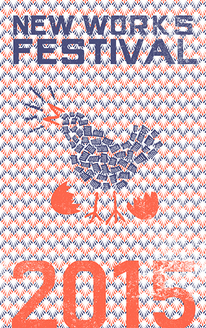 Playwrights Under Progress (PUP) Fest is a unique project co-produced with local youth organization Junior Players. As part of the New Works Festival, PUP Fest features an afternoon of five world premiere staged readings written and performed by some of the Metroplex's finest high school talent and developed through playwriting workshops. The PlaysAmmosick by Angel Pineda (Booker T. Washington, 12th grade) Clowning Around by Lucy Erspamer (Booker T. Washington, 10th grade) My Favorite Things by Marcelino Vazquez (Bryan Adams, 12th grade) Being Honest by Lizzeth Maldonado (Harmony School of Business - Dallas, 9th grade) Playwrights Witness by Brian Miranda (Thomas Jefferson, 11th grade) The playwrights left to right: Angel Pineda, Lizzeth Maldonado, Brian Alexander Miranda, Lucy Rose Erspamer, and Marcelino Vazquez. . Tina Parker, the Co-Artistic Director of Kitchen Dog Theatre, introduced PUP Fest by telling us a little bit about the process and its place in the KDT New Works Festival. At the core of KDT is the belief that finding new plays and supporting new playwrights are primary to its mission. KDT selects one new play of the hundreds of submissions to produce on their mainstage as part of their regular season. This year that lucky playwright is Merideth Friedman and her play, The Firestorm. There are then six additional plays selected to receive workshops and staged readings as satellite productions of the mainstage selection performed as Saturday matinees during the run of the mainstage show with two plays per Saturday. PUPfest fills the fourth Saturday of the mainstage run. PUP Fest was started in 2002 when Tina Parker brought in Vicki Caroline Cheetwood, author of Manicures and Monuments, to design the curriculum and organize the festival of new plays. PUP Fest has been going strong ever since. PUP Fest begins in the spring semester when Dallas playwrights conduct a series of in-school and city-wide workshops with high school students. Students are led through writing exercises leading them to the creation of scenes and characters from which the students then construct their plays. Following the workshops, a call for submissions was sent out to all Metroplex-area high schools for students to submit original scripts. Five of the best are chosen to be part of PUP Fest. With a cast of 28 actors working under the direction of five professional directors, these young writers had their plays workshopped for a week. At the end of rehearsals, the plays got two performances, publicity photos, and all five scripts were published in one book. It's an opportunity of a lifetime. As Vicki Caroline Cheetwood wrote about the experience, "Most artists are die-hard square pegs. We don't really fit in, and there's a certain amount of pride in that. But when you're young and on fire, that isolation can be the killer of so many ideas and dreams. The very best thing that PUPFest does is brings together all these beautiful pegs--the squares, rounds, octagons, rectangles, and triangles-- and welcomes each as an integral part of the circle, and then puts them all to work." This year's selections were a varied bunch. Ammosick, showed a dark future where Androids and humans are at war with each other. Clowning Around was about two rival clown students at Clown College who learn to work together to make them both better clowns. My Favorite Things dealt with the disappearance and subsequent death of a young woman after a Christmas party. Being Honest showed what happens to a family when the father's expectations for his children are not met. Playwright's Witness satirized the door to door sellers of religion and answers the age old question: What if God is a psychopath? I thoroughly enjoyed the writing style of My Favorite Things and its murder mystery/police procedural. Being a girl I immediately noticed that the victim had not been wearing earrings at the party even though that fact is not brought up until the end. My husband didn't notice till the cops did. I'm a big fan of the good cop/bad cop routine and Marcelino Vazquez's dialogue felt like he'd also watched every season of Law and Order, but probably not on maternity leave like I did. The most intriguing play of the five, and the one that my husband and I are still talking about was Playwright's Witness. If God is the one writing our scripts what happens when the actors' go off book? If we displease God with our improvised dialogue are we written out of the play? Dallas Morning News interviewed all five playwrights and I've included that link below. dante flores, PUP Fest veteran It's easy to have a lengthy resume by the time you hit high school when you are born into a family of theatre professionals. Dante Flores has been acting since he was three years old. Dante's parents, John Flores (Sound Designer on Firestorm) and Christie Vela (Mrs. Dashwood in Sense and Sensability), both graduated from Texas A&M University with degrees in theatre and have been working professionally ever since. John and Christie are both KDT Company Members, Christie is a member of Actor's Equity, and a Brierly Company Member at Dallas Theatre Center as well. John does more sound design these days than acting and works all over DFW. Dante's older sister Isa, graduated from KD Conservatory with her Associate's Degree in Acting. The family that plays together stays together and with this family, that's no joke. The first show I ever saw at KDT was Titus Andronicus and it starred the whole family. This was back in 2009 when Dante was 12. If you are not familiar with Titus Andronicus, it's a Shakespearean blood bath. John played Saturnius, Emporer of Rome, Christie played Tamora, Queen of the Goths and Saturnius' wife. Dante and Isa played Tamora's children who get chopped up, baked in a pie, then fed to their own mother. After that Tamora is killed by TItus, Titus is killed by Saturnius, and Saturnius is killed by Titus' son Lucius to avenge his father's murder. Ironically, Jamal Gibran Sterling and Cameron Cobb, both cast members of Firestorm, were also involved in Titus. Jamal played Tamora's henchman and lover Aaron. As mentioned earlier, Cameron was in charge of the numerous blood effects. It wasn't Dante's first time to die in a play, and it probably won't be his last. Dante took some time out to chat with me about his experiences with PUP Fest and Junior Players. Dante just graduated from Booker T. Washington High School for the Performing and Visual Arts. His last role there was Lysander in A Misummer Night's Dream. This is Dante's third summer working with PUP Fest and fourth summer working with Junior Players. Dante's role with PUP Fest this year was to play the bad cop in Marcelino's Vazquez's My Favorite Things. Dante has really enjoyed his time with PUP Fest and Junior Players and think that they are a great resource for students in DFW. Before he heads off to college, he will do one last show with Junior Players this summer, a Bollywood version of A Midsummer Night's Dream at Samuel-Grand Park Amphitheatre. Midsummer opens July 28th and runs for one week only. This time around he's hoping to play Bottom. Junior Players is in its 60th season of providing free, high quality programs that serve over 6,000 students in the Metroplex. Dante will be starting at Emerson College in Boston this fall, majoring in theatre and writing. Like his dad, Dante also likes to write. He's received academic scholarships and grants for his tuition. He's very excited to move across the country , but again, it won't be his first big trip. Dante is a seasoned traveler having been to Italy twice on school trips. If you'd like to see Dante in a much larger role, come out and support the Junior Players by seeing A Midsummer Night's Dream. I've included the link to their website below. FYI Alan Tudyck, Wash from Firefly and Steve the Pirate from Dodgeball, is a Junior Player alum. He's originally from Plano and was in an earlier production of A Midsummer Night's Dream back in 1990. Total cost of event: PUPfest was free, but Rob bought the book of the scripts for $20. The money goes to support the event. the mac's galleriesThe MAC has three galleries. These are the last three shows in this space. angela chestnut: "syn-aesthetic"From Angela's website: "That sounds have color is a key aspect of my artistic production. When I was being educated I was told I had no sense for color. I was steered by my professors away from painting and drawing towards sculpture, as they informed me I did not understand basic color theory. Later, with the help of key texts (Albers, etc) I taught myself color theory as well as realizing that my mind did not process sensory perceptions in a typical fashion. My children's father is a scientist. Sometimes I think about art in terms of chemistry. It is a catalyst that speeds things up. So much of our existence is about our attitude toward things instead of things themselves. This is what I attempt to apprehend when I'm working with materials to form a fiction called art. An object that reminds, or suggests what something is singing to my eyes. People who are atypical appeal to me and I want my art to appeal to the atypical in any person." Olaniyi R. Akindiya AKIRASH: "ADITTU" (PUzzle)From the MAC website: The theme of this exhibition is “ADITTU meaning PUZZLE.” It’s taken from the Yoruba language that is spoken in southwest Nigeria, Africa. The ADITTU/PUZZLE refers both to the purpose of the clothes we wear to cover our secret body parts and the secrets of the creation of traditional cloths – how they are prepared from spinning cotton into threads and then put together to form these unique clothes. Akirash’s work contemplates the wisdom of the spider as it weaves a fascinating web, or a bird constructing its nest. These creatures served as inspiration in the invention of the cloth we wear with its spinning, twisting, and weaving of cotton. Dyeing some into colors extracted from leaves, roots, bark, sands, stones, animal dung and clay. Akirash says: “In the exhibition ADITTU / Puzzle, I am looking at the people, techniques, experiences, and dynamics of using looms to design, create, and weave traditional cloths, including ASO OKE, the cloth from Southwest Nigeria by the people of Yoruba land, and also the world celebrated royal KENTE cloth of the Asante kingdom in Kumasi, Ghana. To honor the many countries in the world that have their own traditional cloth locally made from spinning cotton. Using colored paper cut into small human figures intricately joined and interwoven he combines forms together as one complete piece, like a cloth. Sometimes he joins the cloth and materials to form letters, words and symbols. Other times folding, twisting and joining strips to form a tapestry.” An important extension of Akirash’s work is ARTWITHAKIRASH. The NGO he founded in the Republic of Benin that contributes to the development of communities of women and children by encouraging art in public space. Most of these projects incorporate drama and performance sending a message to the citizens: helping them to educate by learning to make money and to share their experience and knowledge with other people on the streets. His community involvement can be seen in many countries in Africa, Europe, USA, Asia, Caribbean’s, Australia; winning awards, grants and fellowships. Deforrest judd "paintings"From the University of Texas Library's website: "Judd graduated from the Cleveland Institute of Art in 1938 and received a post-graduate scholarship to continue his studies at the Institute in 1939. From 1940 to 1942 Judd studied at the Colorado Spring Fine Arts Center under the center’s director, Boardman Robinson, and Texas artist, Otis Dozier. During World War II Judd served in the United States Army. His academic career as professor of painting, drawing, and design began in 1946 when he moved to Dallas to teach at Southern Methodist University and the Dallas Museum of Fine Arts. In 1967 Judd was promoted to full professor at SMU. He retired from the University in 1981. Judd continued to live in Dallas and devote his time to art until his death in 1992. Judd’s work reflects his study of nature: mountains, lakes, rocks, flowers, cactus, Gulf Coast, and scenes of everyday life that were painted or drawn in a semi-abstract form that made bold use of color. Judd received numerous awards for his work, and while teaching at SMU his work was featured in many one-man shows in Texas including the Dallas Museum of Fine Arts (1946), Southern Methodist University (1950, 1965, 1969, 1981), Elizabet Ney Museum (1952), Sul Ross State College (1957), Texas Tech Museum (1959), Fort Worth Art Center (1962), and the Beaumont Museum of Art (1971). His work was also exhibited in art centers and museum exhibitions around the country including the Metropolitan Museum of Art (one of twelve artists selected for the exhibitionAmerican Painting Today, 1950), Denver Art Museum, Cleveland Museum of Art, Colorado Springs Fine Arts Center, and the Dallas Museum of Fine Arts. Judd’s work was also accepted into the permanent collections of the Cleveland Museum of Art, Colorado Springs Fine Arts Center, Dallas Museum of Fine Arts, and Southern Methodist University." Total cost of the event: Free. Donations are always accepted. Coffee is for sale at the cafe. We bought $2 for $6.00.
2 Comments
Leave a Reply. |
CategoriesArchives
July 2024
|
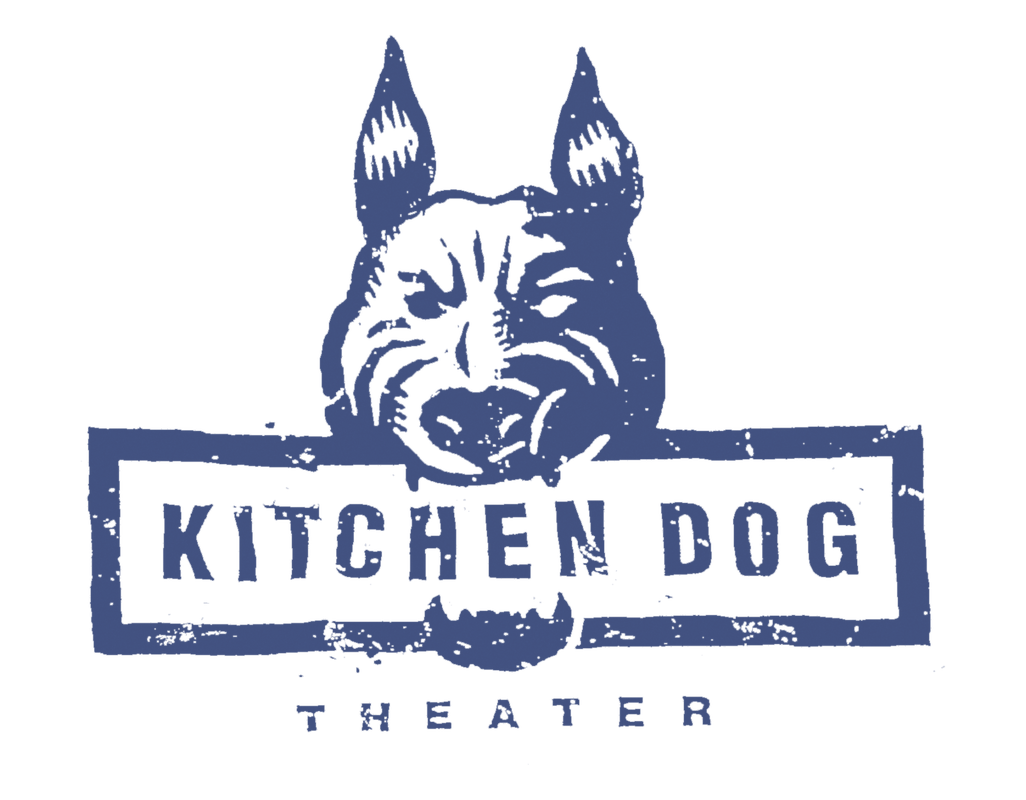
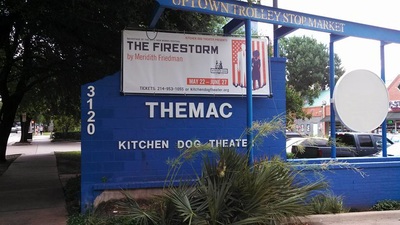
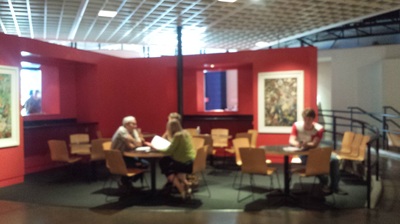
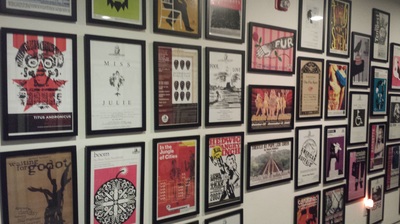
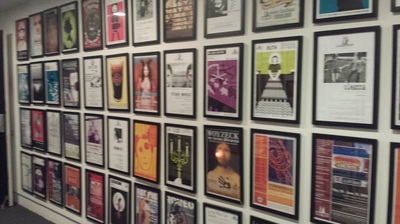

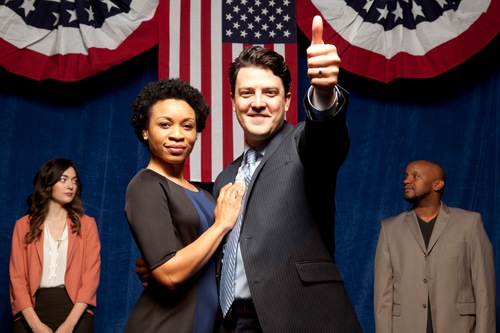
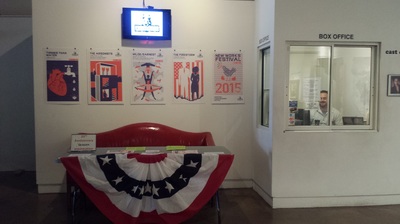
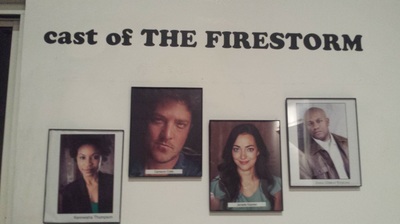
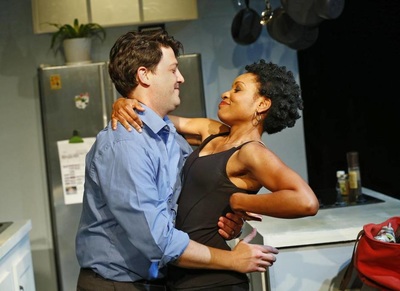
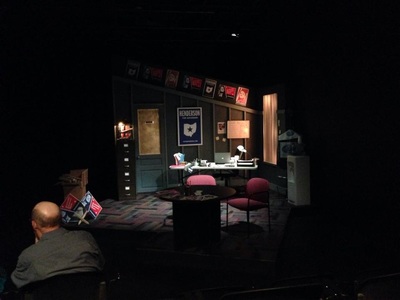
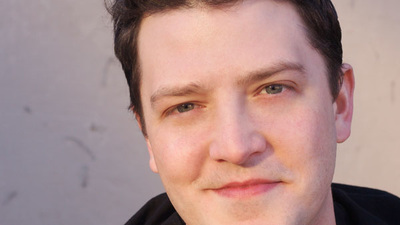
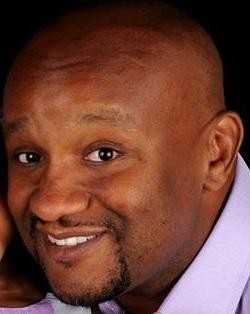
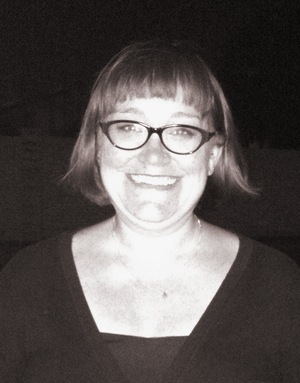
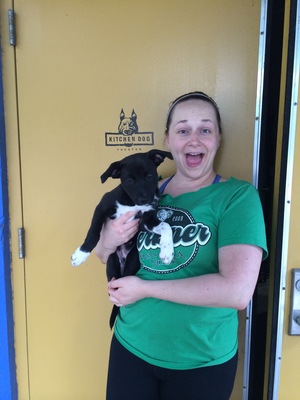
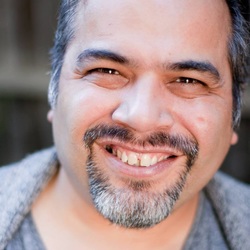
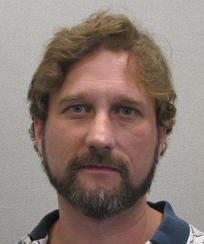
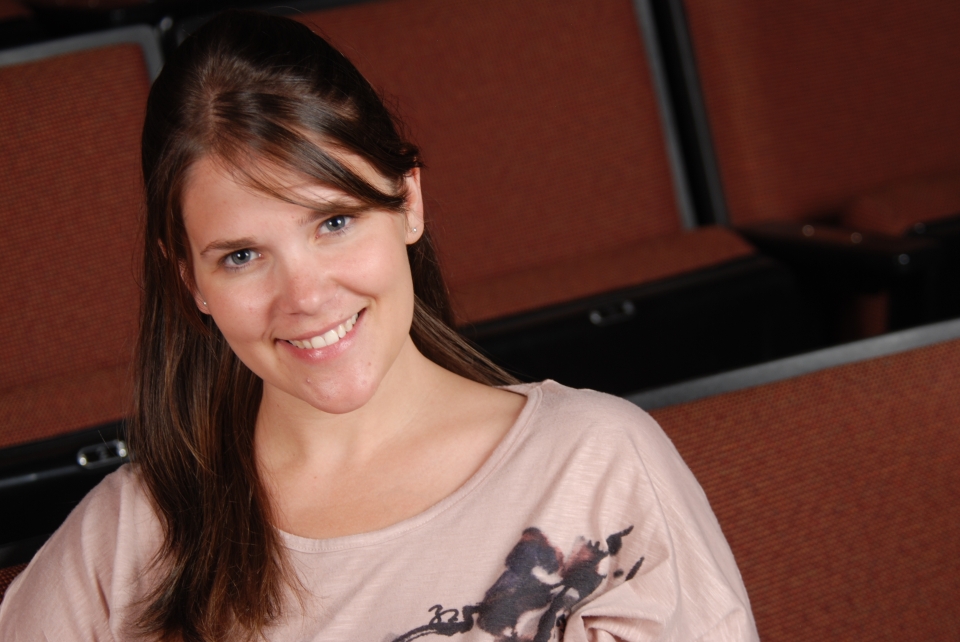


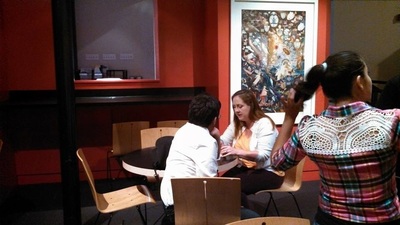
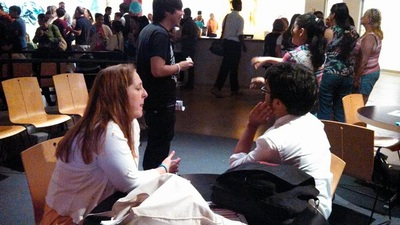
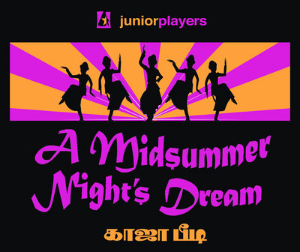
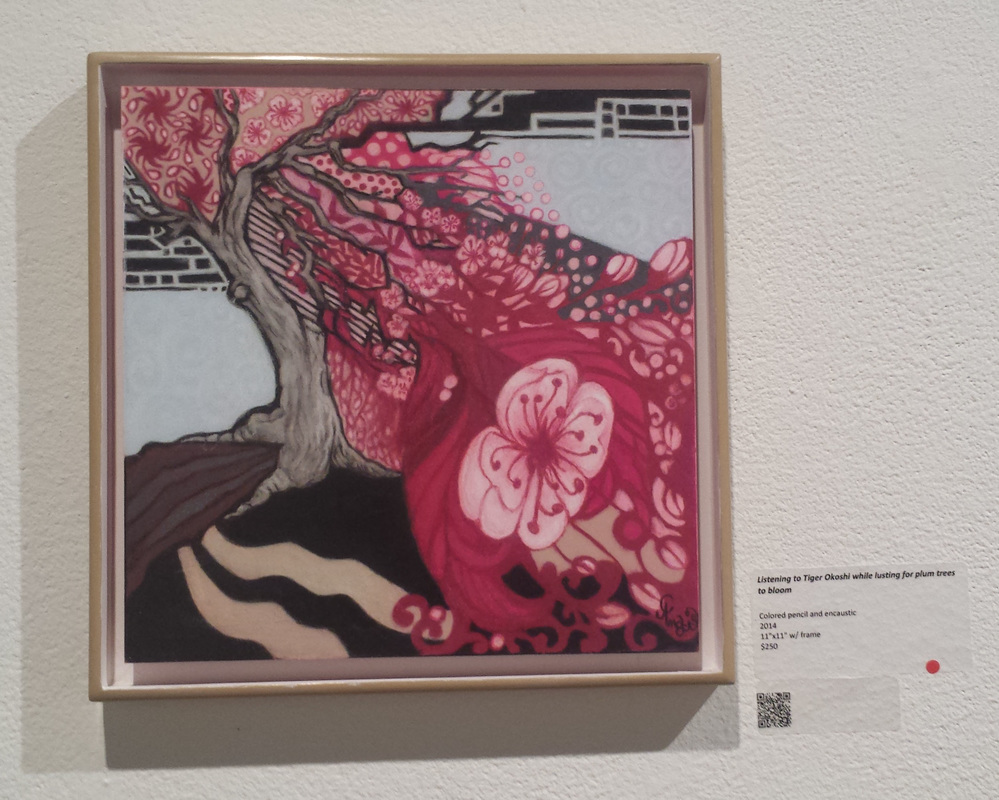
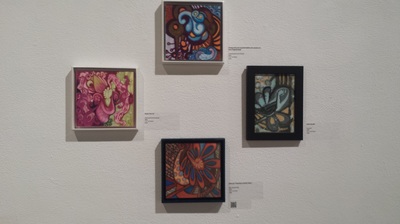
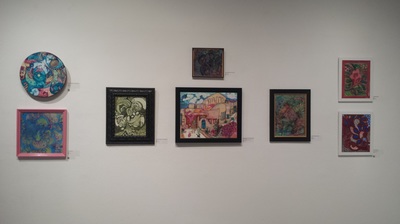
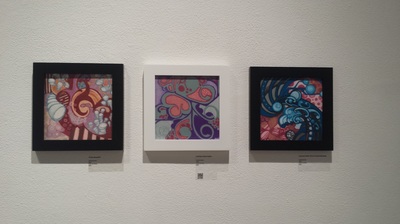
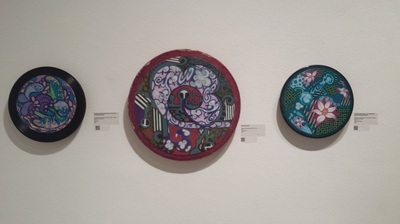
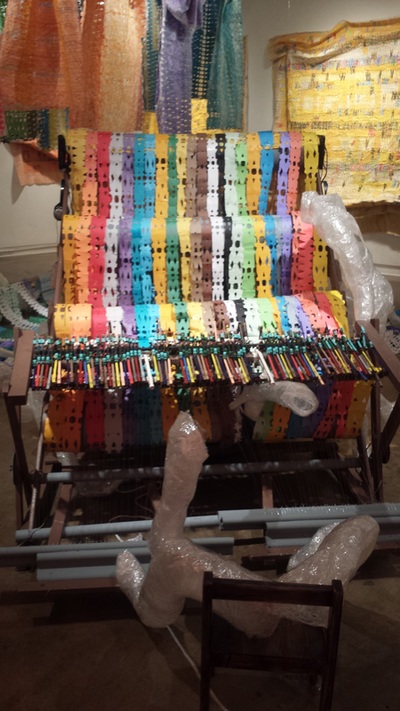
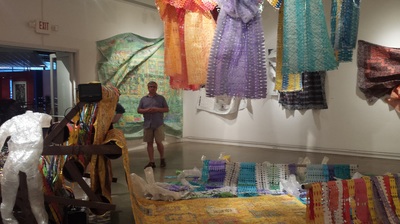
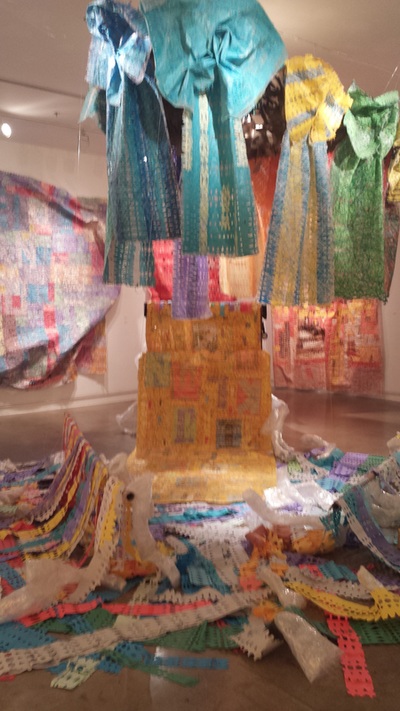
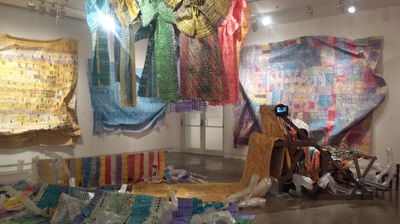
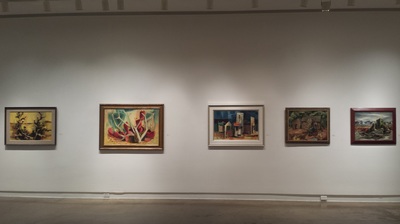
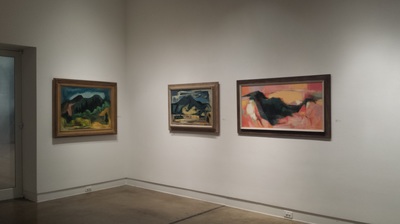
 RSS Feed
RSS Feed